Mentor Day Recognizes Mentors from the IMSD Program
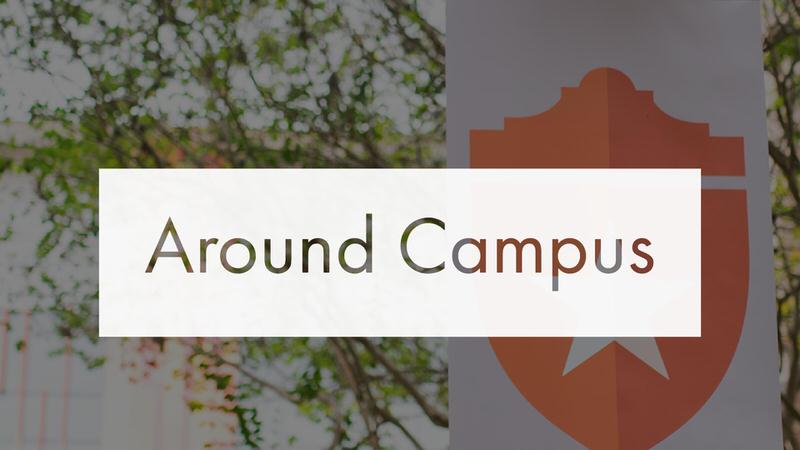
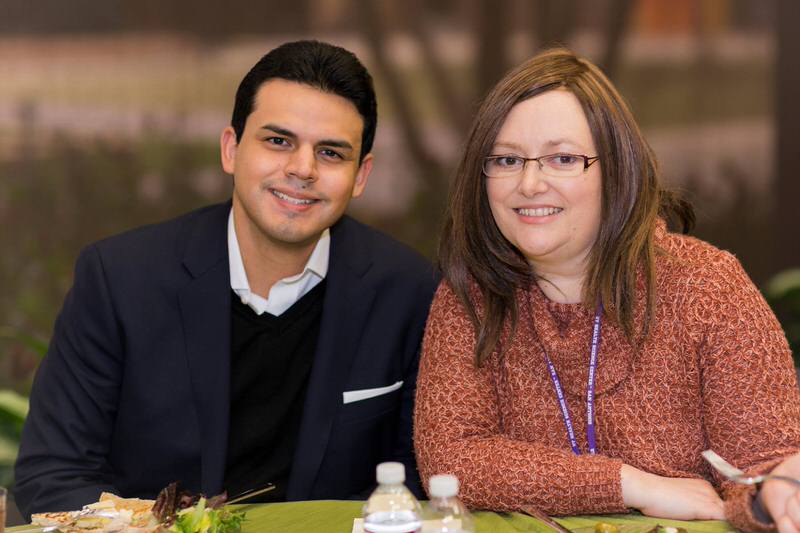 The Initiative on Maximizing Student Development (IMSD) program held a “IMSD Mentor Appreciation Lunch” on Jan. 17 to celebrate the importance of mentor relationships in helping students succeed.
The Initiative on Maximizing Student Development (IMSD) program held a “IMSD Mentor Appreciation Lunch” on Jan. 17 to celebrate the importance of mentor relationships in helping students succeed.
The Initiative on Maximizing Student Development (IMSD) program is a National Institute of Health student development program to increase the number of students from underrepresented groups in biomedical research at research-intensive environments. The event was held on International Mentoring Day which also coincidences with January’s National Mentoring Month.
“We are completely dependent on you as mentors to train these students,” said
Dr. Nicquet Blake, associate dean for admissions and student affairs at the Graduate School of Biomedical Sciences and principal investigator of the IMSD grant.
 During the event, Dr. Blake gave some background history on the IMSD program.
During the event, Dr. Blake gave some background history on the IMSD program.
“Around 2010, we looked at the data and only 12 percent of our students were underrepresented, and we also saw that when we brought in underrepresented students, 40 percent would leave after the first year and 60 percent would take longer than their peers to graduate,” she said.
She explained that after the launch of IMSD, she has seen tremendous changes.
“Our data shows that now our students are graduating at the same rate as their peers and now 27 percent of students are from underrepresented groups,” she said.
In order to help recognize the efforts of mentors, the program created the “Mentor of the Year” award which was based on submissions of IMSD students.
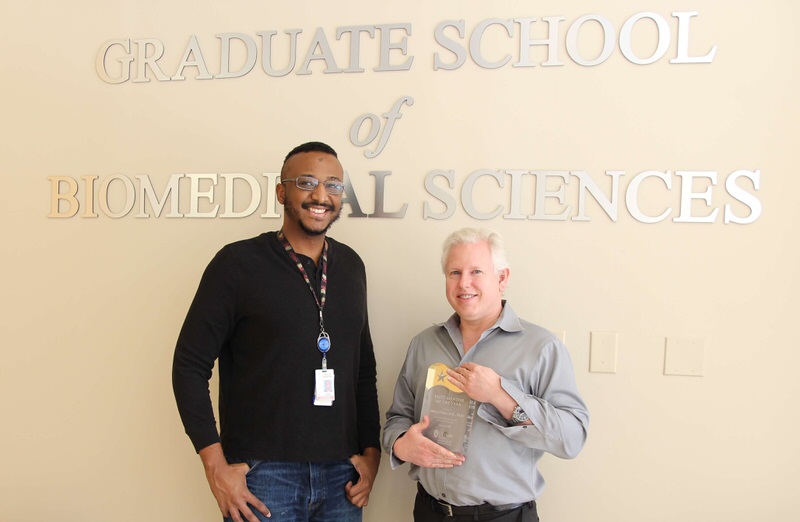 “There is no one correct way to mentor,” Dr. Blake said. “What we wanted to do was recognize mentors that shine and if you didn’t win this year, then you should keep trying to be the best mentor you can be for next year’s award.”
“There is no one correct way to mentor,” Dr. Blake said. “What we wanted to do was recognize mentors that shine and if you didn’t win this year, then you should keep trying to be the best mentor you can be for next year’s award.”
The award for “IMSD Mentor of the Year” was awarded to Dr. Alfred Fisher, a physician-scientist who is both the head of an active basic-science focused research lab, and active in multiple service activities at the Audie L. Murphy Memorial VA Hospital and on the UT Health Science Center campus.
Dr. Fisher was nominated by Phillip Webster, a fourth-year graduate student in the Cell Biology, Genetics & Molecular Medicine discipline of the Integrated Biomedical Sciences program. Phillip gave a brief speech about the impact that Dr. Fisher has had on his education and scientific training at UT Health San Antonio.
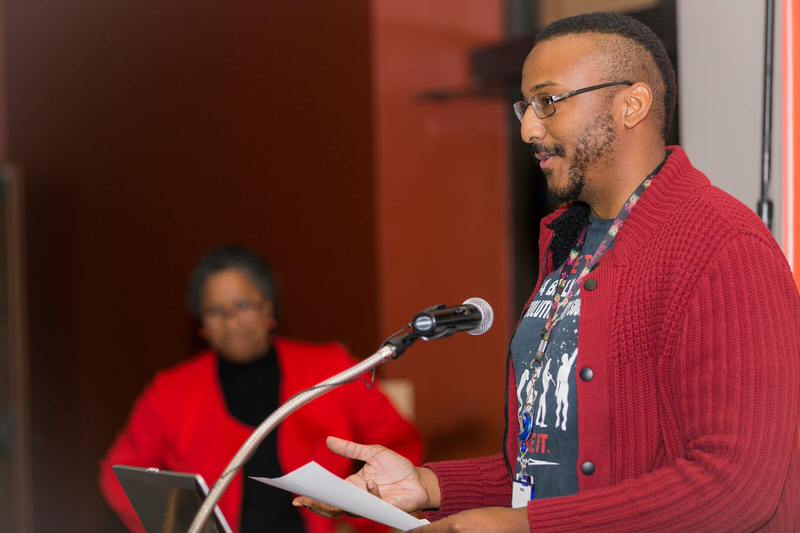 “Al has been one of the best mentors I have had the pleasure of working with who is responsible for turning me into a competent scientist and I thought no one would ever beat my undergraduate mentor. I have seen Al go above and beyond for his students as one of the few professors I know who is readily hands on when you need protocol assistance and has an open-door policy to bounce ideas off of and vent research frustrations too. Most importantly, Al remembers what it was like to be a graduate student and how important it is to maintain a work-life balance. There was never a time where I did not feel wholly supported on the shoulders of such a great scientist. Every ridiculous, high hopes idea I had was met with an enthusiastic smile and an extensive discussion on methodology, hypothesis, and analysis. I am completely positive now that he expected very few if any to work, but it was clear that his enthusiasm rooted in his love for science and discovery matched mine every time. He has become a scientist that I aspire toward.”
“Al has been one of the best mentors I have had the pleasure of working with who is responsible for turning me into a competent scientist and I thought no one would ever beat my undergraduate mentor. I have seen Al go above and beyond for his students as one of the few professors I know who is readily hands on when you need protocol assistance and has an open-door policy to bounce ideas off of and vent research frustrations too. Most importantly, Al remembers what it was like to be a graduate student and how important it is to maintain a work-life balance. There was never a time where I did not feel wholly supported on the shoulders of such a great scientist. Every ridiculous, high hopes idea I had was met with an enthusiastic smile and an extensive discussion on methodology, hypothesis, and analysis. I am completely positive now that he expected very few if any to work, but it was clear that his enthusiasm rooted in his love for science and discovery matched mine every time. He has become a scientist that I aspire toward.”
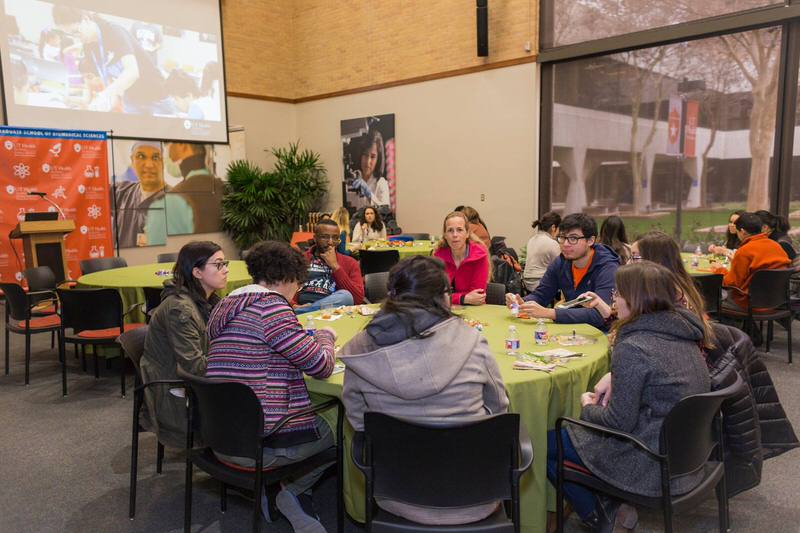 Dr. Kay , professor in the Department of Cell Systems & Anatomy, attended the event and said that he thought that “it was a very good thing to get students to think about what mentors bring to their training.”
Dr. Kay , professor in the Department of Cell Systems & Anatomy, attended the event and said that he thought that “it was a very good thing to get students to think about what mentors bring to their training.”
Mentors play an important role in providing scientific training to help students learn how to responsibly conduct research.
The AAMC Compact Between Biomedical Graduate Students and Their Research Advisors further explains that mentors help create an “environment in which the student can discuss and explore career opportunities and paths that match their skills, values, and interests and be supportive of their career path choices.”
Shaimar Gonzales, a second-year student in the Cell Biology, Genetics & Molecular Medicine discipline of the Integrated Biomedical Sciences program, explained that it “was nice to appreciate mentors because it will inspire them to work harder to get the award for the next year.”
Allison Hester, a second-year student in the Infection, Inflammation and Immunity discipline of the Integrated Biomedical Sciences program, said that “the event is a great way to communicate our appreciation for out mentors. Our mentors shape the way we think of science everyday so they have a huge impact on our future success and leadership.”
Kristin Rogers, an M.D./Ph.D. GS4 student, echoed the same thought and said that “every relationship has ups and downs and events like this can help us to show appreciation. We may not always say it but we do appreciate our mentors.”
Video:
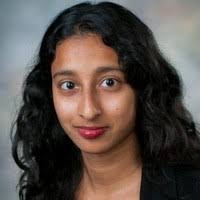 This article was written by Charlotte Anthony, marketing specialist at the Graduate School of Biomedical Sciences at UT Health San Antonio.
This article was written by Charlotte Anthony, marketing specialist at the Graduate School of Biomedical Sciences at UT Health San Antonio.
